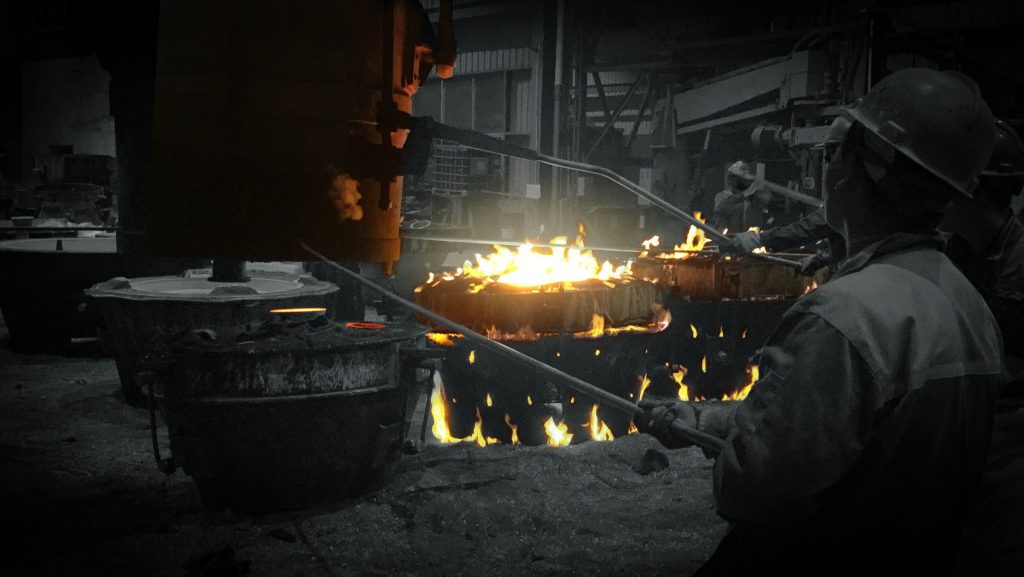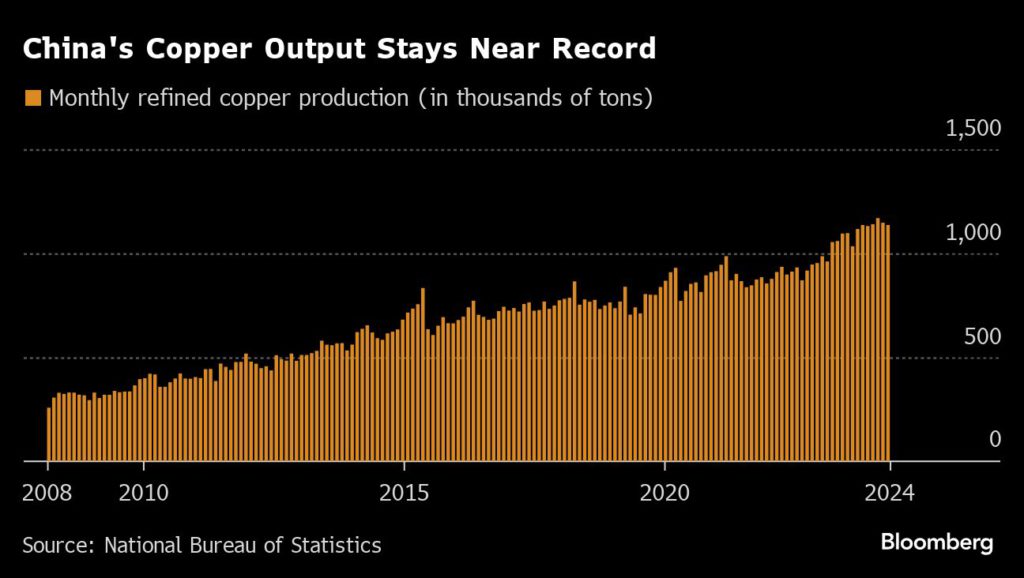
https://www.mining.com/web/china-defies-global-copper-squeeze-with-near-record-production/
The global copper market is gripped by fears of a shortage, which has propelled prices to record levels and sparked a $49 billion takeover battle. But in China, the world’s biggest producer and consumer of the refined metal, there’s more than enough to go around.![]()
At the center of that conundrum are the nation’s ever-expanding copper smelters. The industry is maintaining production at near-record levels — defying a scarcity of raw materials — as higher prices unlock more scrap metal for processing.

Smelters had pledged to reduce capacity after their fees collapsed because of a supply squeeze on the imports of ore they use as feedstock. The prospect of insufficient copper in China is just one of the pillars supporting a barnstorming rally that took the metal above $11,000 a ton for the first time at the start of last week. But the cuts haven’t happened and China’s faltering economy isn’t able to absorb the excess.
The mismatch between supply and demand has become more glaring in recent days, with prices retreating to just above $10,300 a ton. Although that’s still a 21% gain for the year, it suggests that as long as China remains oversupplied, copper will struggle to make further headway.
The availability of scrap from discarded pots, pipes and wires has risen quickly after copper prices surged, said Liang Kaihui, an analyst with Shanghai Metals Market. Fabricators have been busy turning that into blister, a semi-processed version of the metal, and feeding it back to smelters, he said, where it’s used as a substitute for the overseas ore that’s now in short supply.
The abundance of scrap is seen in its discount to refined copper, which blew out to 4,615 yuan ($637) a ton last week, the widest in at least eight years, according to SMM.
The smelting industry, meanwhile, keeps adding capacity. As long as they’re profitable, individual firms prefer to defend market share at the expense of margins. Local governments also want them to keep churning out metal so that they can meet their economic growth targets and maintain employment levels.
No comments:
Post a Comment